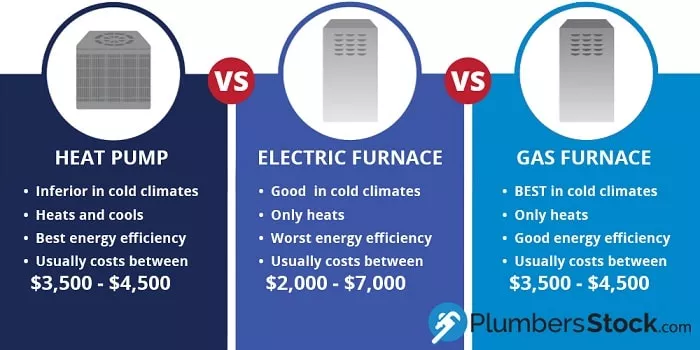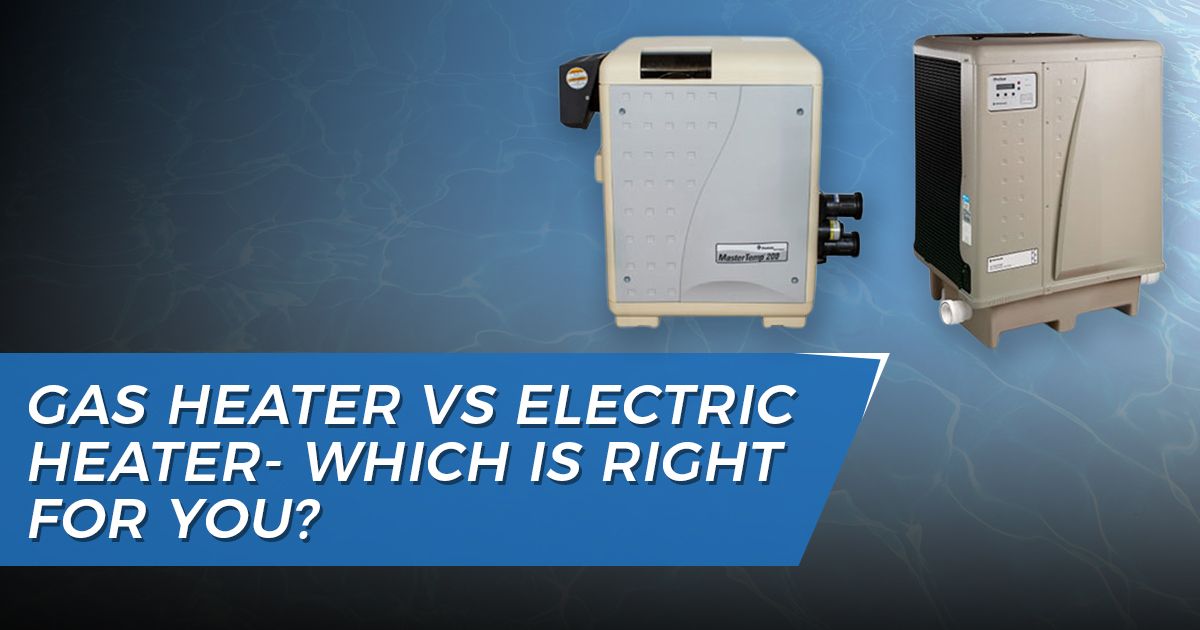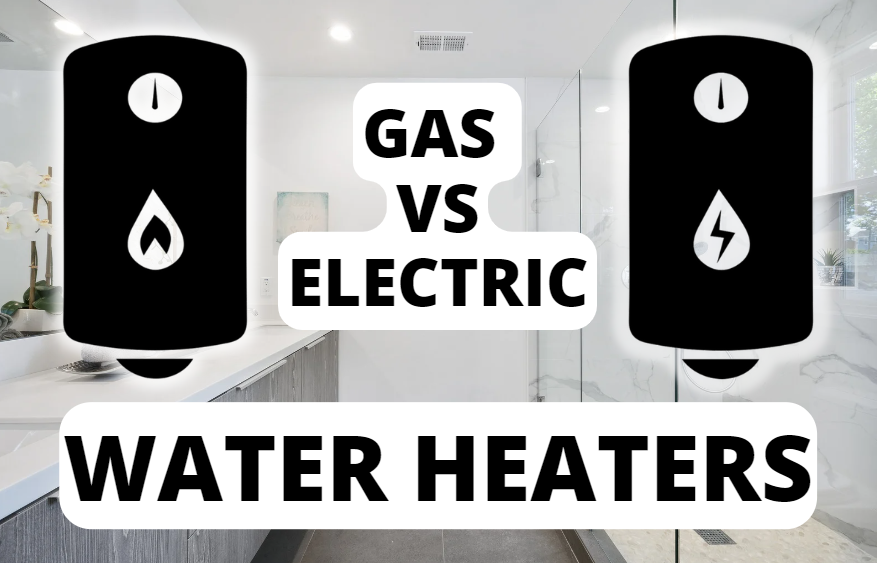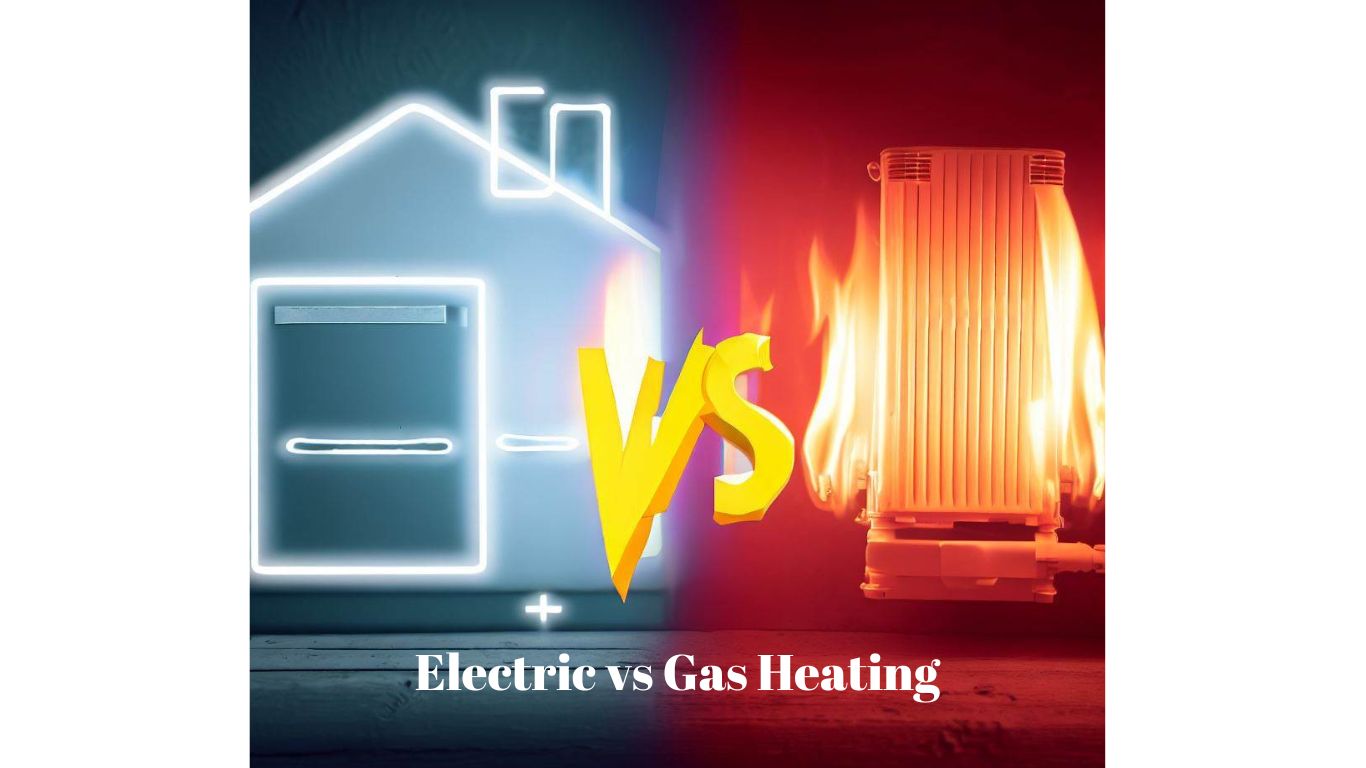Which Is Cheaper Electric Or Gas Heating

Electric vs. Gas Heating: Which is Cheaper for Your Home?
Choosing the right heating system for your home is a big decision, impacting both your comfort and your wallet. One of the most common questions homeowners ask is: "Which is cheaper, electric or gas heating?" The answer isn't straightforward, as it depends on several factors, including fuel prices in your area, the efficiency of your heating system, and your home's insulation. This article will break down the pros and cons of both electric and gas heating to help you make an informed decision.
Understanding the Basics: Electric Heating
Electric heating typically comes in a few forms:
- Electric Resistance Heaters: These include space heaters, baseboard heaters, and electric furnaces. They work by running electricity through a resistor, which heats up and radiates heat.
- Heat Pumps: Heat pumps don't generate heat directly. Instead, they transfer heat from one place to another. In winter, they extract heat from the outside air (even when it's cold) and pump it into your home.
Pros of Electric Heating:
- Lower upfront installation costs for resistance heaters.
- Easier installation for resistance heaters (often DIY-friendly).
- Cleaner burning (no emissions at the point of use).
- Heat pumps can also provide cooling in the summer.
- Potentially safer than gas (no risk of carbon monoxide leaks with resistance heaters).
Cons of Electric Heating:
- Generally more expensive to operate than gas heating with resistance heaters, depending on local electricity prices.
- Electricity prices can be volatile.
- Heat pumps may struggle in extremely cold climates.
- Resistance heaters can be inefficient.
Understanding the Basics: Gas Heating
Gas heating primarily uses natural gas or propane to fuel furnaces or boilers.
- Furnaces: Furnaces heat air, which is then distributed throughout your home via ductwork.
- Boilers: Boilers heat water, which is then circulated through radiators or radiant floor systems.
Pros of Gas Heating:
- Often cheaper to operate than electric resistance heating, depending on local gas prices.
- Gas furnaces can provide a high heat output, quickly warming your home.
- Gas prices tend to be more stable than electricity prices in some regions.
Cons of Gas Heating:
- Higher upfront installation costs.
- More complex installation, requiring professional expertise.
- Requires a gas line connection.
- Potential for carbon monoxide leaks (requires proper ventilation and CO detectors).
- Can be less environmentally friendly than some electric options (depending on the source of electricity).
The Cost Breakdown: A Detailed Comparison
To accurately compare the costs, let's break it down into several key areas:
1. Installation Costs
Electric Resistance Heaters: Installing electric baseboard heaters or space heaters is relatively inexpensive and often DIY-friendly. You'll primarily need the heaters themselves and basic wiring supplies. Expect to pay $50-$200 per heater. Always consult a qualified electrician for any wiring work.
Heat Pumps: Heat pump installation is more expensive, ranging from $4,000 to $8,000 on average, depending on the size and type of unit.
Gas Furnaces: Furnace installation typically ranges from $3,000 to $7,000, including ductwork modifications and gas line connections.
2. Operating Costs
This is where the real difference lies. To calculate your estimated operating costs, you need to know:
- The efficiency of your heating system (AFUE for gas furnaces, HSPF for heat pumps).
- The cost of electricity per kilowatt-hour (kWh) in your area.
- The cost of natural gas per therm in your area.
- Your heating needs based on your climate and home size.
You can find your local energy prices on your utility bill or through your utility company's website. There are also online calculators that can help you estimate your heating costs based on these factors.
Generally, in areas with low natural gas prices and high electricity prices, gas heating will be cheaper to operate. Conversely, in areas with low electricity prices and high natural gas prices, electric heating (especially heat pumps) can be more cost-effective.
3. Maintenance and Repair Costs
Electric Resistance Heaters: Require minimal maintenance. Repairs are usually limited to replacing faulty heating elements, which are relatively inexpensive.
Heat Pumps: Require regular maintenance, including cleaning coils and checking refrigerant levels. Repairs can be more expensive, especially if the compressor fails.
Gas Furnaces: Require annual maintenance, including cleaning burners, checking for leaks, and inspecting the heat exchanger. Repairs can range from simple thermocouple replacements to more complex issues like replacing the gas valve or blower motor. Carbon monoxide detection is paramount; install and maintain CO detectors.
Common Furnace Problems & DIY Checks (Always turn off the power and gas supply before attempting any repairs):
- Furnace won't turn on: Check the thermostat settings, the circuit breaker, and the furnace's power switch. If the igniter is faulty, it might need replacing. Call a professional for gas valve or heat exchanger issues.
- Furnace blows cold air: Check the gas supply, the pilot light (if applicable), and the flame sensor. Never attempt to repair the gas line yourself.
- Furnace is noisy: Check for loose parts or debris in the blower fan. Lubricate the blower motor if necessary.
4. Lifespan
Electric resistance heaters can last for 15-20 years with minimal maintenance. Heat pumps typically last 10-15 years. Gas furnaces have a similar lifespan of 15-20 years, depending on maintenance and usage.
Key Factors to Consider: Making the Right Choice
Before making a decision, consider the following factors:
- Your Climate: Heat pumps are most effective in moderate climates. In very cold climates, gas furnaces may be a better option.
- Your Home's Insulation: Proper insulation is crucial for minimizing heating costs, regardless of the fuel source.
- Local Energy Prices: Compare the costs of electricity and natural gas in your area.
- Efficiency Ratings: Look for high AFUE ratings for gas furnaces and high HSPF ratings for heat pumps.
- Long-Term Costs: Consider not only the initial installation cost but also the ongoing operating and maintenance costs.
DIY vs. Professional: Knowing Your Limits
Some basic troubleshooting and maintenance tasks, like replacing air filters or cleaning heating elements, can be done by homeowners. However, more complex repairs, such as working on gas lines, electrical wiring, or refrigerant lines, should always be left to qualified professionals. Working with gas or high-voltage electricity can be dangerous and requires specialized knowledge and equipment.
When to Call a Professional:
- Any work involving gas lines.
- Any work involving high-voltage electrical wiring.
- Refrigerant leaks in heat pumps.
- Major component failures in furnaces or heat pumps.
- If you are uncomfortable or unsure about any repair.
Tools You Might Need (for Safe DIY):
- Screwdrivers (various sizes and types)
- Wrenches
- Multimeter
- Voltage tester
- Work gloves
- Safety glasses
- Vacuum cleaner
Parts You Might Need (Common Replacements):
- Air filters
- Thermocouples
- Igniters
- Heating elements
- Thermostats
Conclusion: Making an Informed Decision
Ultimately, the "cheaper" option between electric and gas heating depends on your specific circumstances. By carefully considering the factors outlined in this article, including installation costs, operating costs, maintenance costs, and your local energy prices, you can make an informed decision that will keep your home comfortable and your energy bills under control. Remember to prioritize safety and call a qualified professional for any repairs that are beyond your skill level.
Important Safety Tip: Always turn off the power and gas supply before attempting any repairs on your heating system. If you smell gas, evacuate the premises immediately and call your gas company from a safe location.










